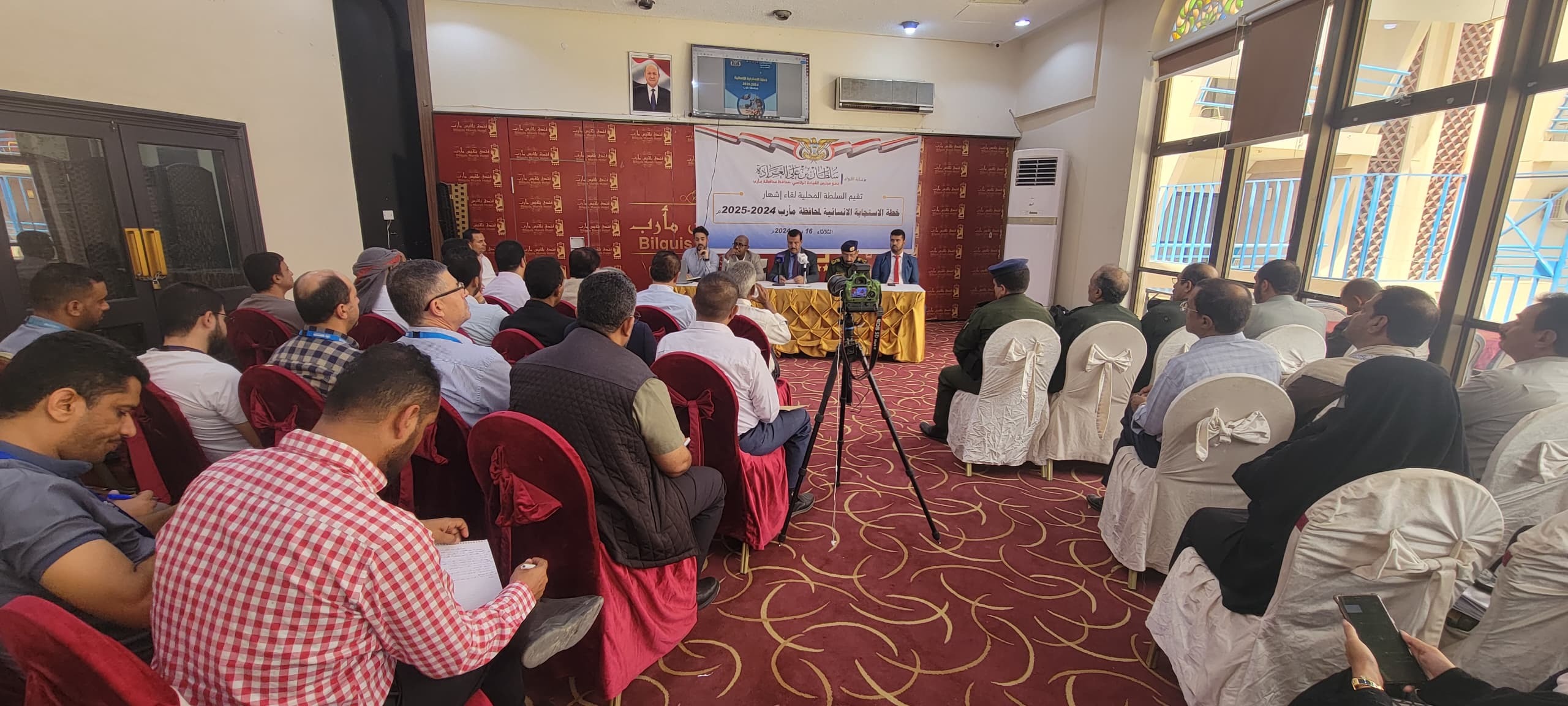


Barran Press
The local authority in Marib governorate, eastern Yemen, launched a two-year humanitarian response plan for the governorate on Tuesday, July 16, 2024, amidst a large gathering of international, regional, and UN organizations.
The plan, published in a large-format book in both Arabic and English, highlights the dire humanitarian crisis in Marib, stating it is the worst in Yemen after nine years of war. A high percentage of Marib's population faces starvation, disease, and death, exceeding any other governorate in Yemen. Hundreds of thousands are one step away from famine.
The plan provides a detailed breakdown of the humanitarian situation in the governorate, including precise statistics and percentages. It also highlights Marib's status as the largest gathering of internally displaced persons (IDPs) in Yemen, with a current population of 3,059,752, including 2,134,497 IDPs, 531,000 host community members, and 37,541 African migrants.
The plan outlines a matrix of humanitarian needs across all essential sectors, noting that Marib has been classified as Stage 4 in the Integrated Phase Classification System for 2024.
During the plan's launch event, Deputy Governor Dr. Abdurba Muftah emphasized that the large population and its growing needs have presented a significant challenge for the local authority in recent years. These challenges have intensified with the increasing needs and ongoing displacement into the governorate, coupled with a significant decline in humanitarian interventions from partners due to funding shortages.
He explained that this plan serves as a framework for activating partnerships with humanitarian actors and defining their interventions based on the plan's priorities. The plan highlights the most critical needs in various sectors, encompassing both emergency response and long-term development needs that will help residents build resilience and facilitate post-war recovery.
Deputy Governor Muftah assured that the local authority will continue to provide all necessary support to humanitarian partners to alleviate the suffering of the population, address their needs, and mitigate the humanitarian crisis that is deepening amidst economic deterioration, climate change, and the Houthi militia's ongoing war, escalation, and forced displacement of citizens.
Saad Musa, Director of the OCHA office in Marib, commended the humanitarian response plan, stating that OCHA will work to integrate it with the UN's overall humanitarian plan and enhance collaboration in the coming days.